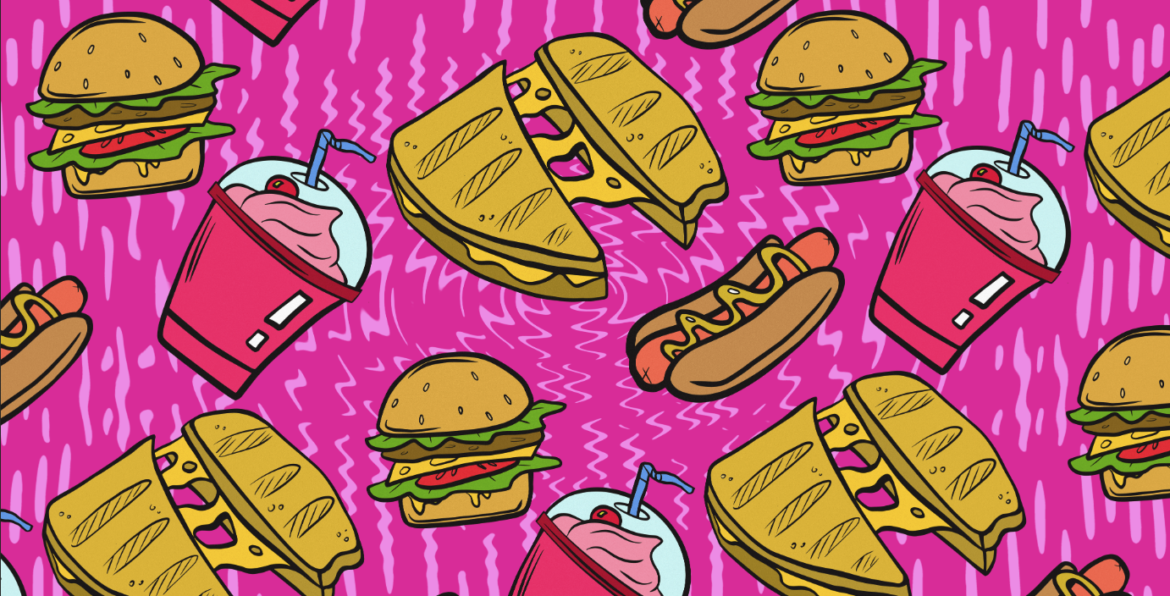As every story begins, one day I was watching this TikTok, where a boyfriend teased his girlfriend for being “picky” by showing off the Eastern Asian food that he and his family were eating, while his girlfriend ate chicken nuggets and french fries.
Of course, as a connoisseur of cheap drama, my first reaction was to check out the comment section and see what the internet’s thoughts were. To say that they were HEATED would be an understatement. There were comments dragging the girlfriend, with some saying that picky eaters were the worst, that the girlfriend was being disrespectful to her boyfriend’s family, and that she was being intolerant of other cultures. Then, on the other side, there were comments defending the girlfriend. Some users said it was offensive to call her a picky eater and that people can’t control what foods they can and cannot eat.
After reading the comment section, I was left with mixed feelings. First, I put myself in the boyfriend’s family’s shoes and I imagined if my little sister brought home a partner who refused my parent’s cooking and demanded chicken nuggets instead. This seemingly inappropriate behavior immediately filled me with rage. But then I thought about it from the perspective of the counter-argument. What if this hypothetical partner had dietary restrictions so they couldn’t eat the prepared meal and the only other option for them was the frozen nuggets in the fridge? Suddenly, I felt empathy and had understanding.
So why was the thought of picky eaters so enraging? And why do we think certain foods are gross?
A fun fact: the sciency title for being grossed out by particular foods is food aversion. The Cleveland Clinic defines food aversion as “a strong dislike for a particular food. The sight, the smell, or taste of the food causes you to feel nauseous or makes you gag.” Um, yuck! Why does this happen to us?
Well, the exact cause of food aversion is unknown, but studies speculate that it is due to either hormonal changes or difficulties with sensory processing. These two things seem completely out of our control, so how does one overcome food aversion? Apparently, there are several ways to treat food aversion such as: hiding the food in food that you do like, changing the texture of the food, slowly increasing exposure to the food, and working with a therapist to figure out if there is a mental reason the aversion originated from.
Now, science is the bomb, but it has left us with some unanswered questions when it comes to why we define certain foods as gross. Food is more to us than just fuel, it is a symbol of communion to many and plays an influential role in our lives both socially and culturally.
Specifically, in many cultures, taboos can play a large role in what is defined as gross. For example, in Lebanon, Christians’ religion allows for them to eat pork, but many abstain due to the cultural influence of living in a Muslim-majority country. The food that we grow up with is what we consider the standard, and the food that doesn’t fall into that standard category is considered ‘other.’
When I was growing up, my favorite food was my mother’s chicken parmesan and that recipe would make any Italian scream. Frozen chicken breasts from Tyson, Prego tomato sauce, and penne noodles were an amazing part of my childhood, and it is the recipe that naturally I compare every chicken parm to. Yet, what I consider as the standard chicken parm could be something that triggers someone else’s gag reflex.
This is where disgust or calling something “gross” gets complicated. Sure, you can’t help disgust, but certain types of food can be staples of a culture and hold an emotional significance to those who partake in it. It is critical that we recognize how disgust for particular dishes can be reflected as a reaction towards the culture and as an insult to the people who identify with the culture.
I think the reason why people get frustrated by the idea of picky eaters is because their disgust towards the food can also be construed as a disgust towards the culture. It can call into question whether the person has food aversion or if their implicit bias has created a food bias.
Maya Feller, a registered dietician nutritionist, recommends reflecting after critiquing a meal and asking these questions to determine if a food bias is at play: What makes me uncomfortable about the food? Is this an opportunity to learn about a culture other than my own? Can I reframe my thinking to look at this meal in a new way?
In a way, I think both sides of the heated TikTok comment section held a grain of truth. There are people who have food aversions that are on par with dietary restrictions and should not be belittled by being called a picky eater. However, it is also important to differentiate food aversion from food bias, because it is not cool to dislike other foods just because they are from a different or unfamiliar culture.
Either way, when having conversations about food, please lead with compassion, because you never know what someone’s relationship with food is and what you say does matter.




